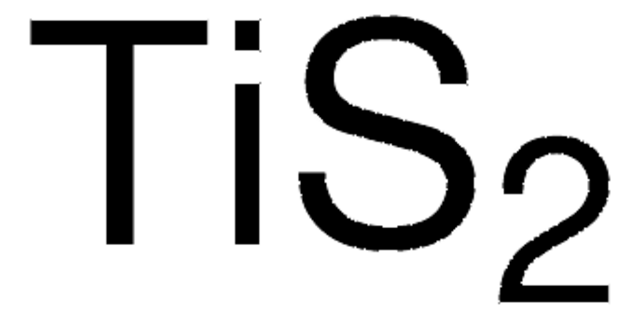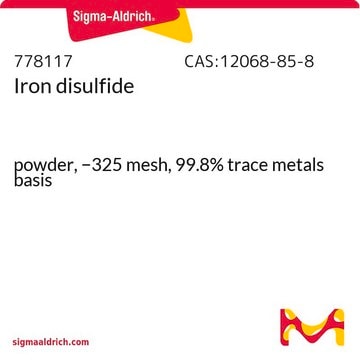343226
Nickel sulfide
99.7% trace metals basis, −150 mesh
Synonym(s):
Nickel subsulfide
About This Item
Recommended Products
Assay
99.7% trace metals basis
form
powder
reaction suitability
reagent type: catalyst
core: nickel
particle size
−150 mesh
density
5.8 g/mL at 25 °C (lit.)
application(s)
battery manufacturing
SMILES string
[Ni]=S=[Ni]=S=[Ni]
InChI
1S/3Ni.2S
InChI key
YGHCWPXPAHSSNA-UHFFFAOYSA-N
General description
Application
Packaging
Signal Word
Danger
Hazard Statements
Precautionary Statements
Hazard Classifications
Acute Tox. 3 Inhalation - Aquatic Acute 1 - Aquatic Chronic 1 - Carc. 1A Inhalation - Muta. 2 - Skin Sens. 1 - STOT RE 1 Inhalation
Target Organs
Lungs
Storage Class Code
6.1D - Non-combustible acute toxic Cat.3 / toxic hazardous materials or hazardous materials causing chronic effects
WGK
WGK 3
Flash Point(F)
Not applicable
Flash Point(C)
Not applicable
Personal Protective Equipment
Certificates of Analysis (COA)
Search for Certificates of Analysis (COA) by entering the products Lot/Batch Number. Lot and Batch Numbers can be found on a product’s label following the words ‘Lot’ or ‘Batch’.
Already Own This Product?
Find documentation for the products that you have recently purchased in the Document Library.
Customers Also Viewed
Our team of scientists has experience in all areas of research including Life Science, Material Science, Chemical Synthesis, Chromatography, Analytical and many others.
Contact Technical Service













